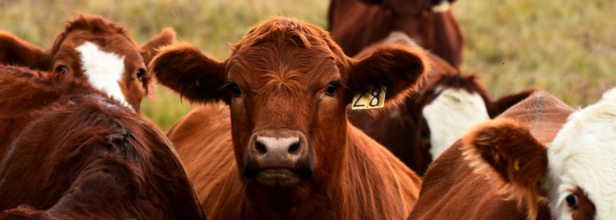
UK Bans Pigs, Sheep And Cattle Imports From Germany Amid The Foot-And-Mouth Disease
Amid the rise in many diseases, including bird flu in the US which infected not just birds but also farm animals and humans, as well as trichomoniasis in birds in the UK, the country is again burdened with yet another disease. The UK has introduced a ban on pigs, sheep and cattle imports from Germany after a case of foot-and-mouth disease was confirmed in the country.
The authorities on Tuesday said that it will no longer approve health certificates for animals, fresh meat and animal products susceptible to the disease.
Foot-And-Mouth Disease
Germany had been free of the foot-and-mouth disease (FMD) since 1988, however, the virus was detected again in a herd of water buffalo in the state of Brandenburg in early January 2025. While the authorities confirmed cases, with three of the animals being infected and dead, rest culled. In fact, South Korea too banned the import of pork from Germany. Country's Agriculture Minister Cem Özdemir cautioned that there would be no quick return to normality.
What Is The Disease?
FMD is caused by aphthoviruses, which are highly contagious viral infection that affect cloven-hoofed animals. These include domestic and wild pigs, cows, sheep, goats, buffalo and dear. These infected animals could also include giraffes, camels, hippopotamuses and elephants. When infected, they have fluid-filled blisters on their mouths, hooves and teats and when the blisters burst, the fluid leaks and virus then spreads and infects other animals.
The virus could also be spread via breath, dung, milk and spit. Indirectly, the virus is transmitted via contaminated surfaces and other objects, such as animal transportation vehicles and clothing.
For now, FMD is not considered zoonotic disease, as it the infection does not spread between animals and humans. So far, no known cases of transmission via food and drink or infection from humans to humans have been reported.
READ: UK Households Are Being Warned Amid The Spread Of A Deadly Bird Disease
Thought Germany's Federal Institute for Risk Assessment, advises caution when it comes to consuming raw or unpasteurized milk, frozen pork and other animal products.
Actions UK Is Taking
While it is a rarity in humans, it affects cattle, leading to livestock being slaughtered. In 2001 and 2007, the UK suffered outbreaks of the disease leading to millions of livestock animals being culled.
Farming minister Daniel Zeichner told that the government will do "whatever it takes to protect our nation's farmers from the risk posed by foot-and-mouth."
There is currently no cure for FMD (Foot-and-Mouth Disease). Until 1991, EU regulations required cattle to be vaccinated against the disease. However, it was later discovered that vaccinated animals could still carry the virus for years, leading to the discontinuation of routine vaccination.
FMD vs HFMD
Hand, food, and mouth disease (HFMD) is a viral infection that causes rash, and painful mouth sores. It is often confused with FMD, which is not the same. FMD is not a zoonotic disease, while HFMD is most contagious and common among children, though it can also affect adolescents and adults.
As per the Centers for Disease Control and Prevention (CDC), it is caused by viruses when a person who is infected touches another person. It usually spreads through droplets, fluid from blisters, stool and objects and surfaces with virus particles.
© 2024 Bennett, Coleman & Company Limited

